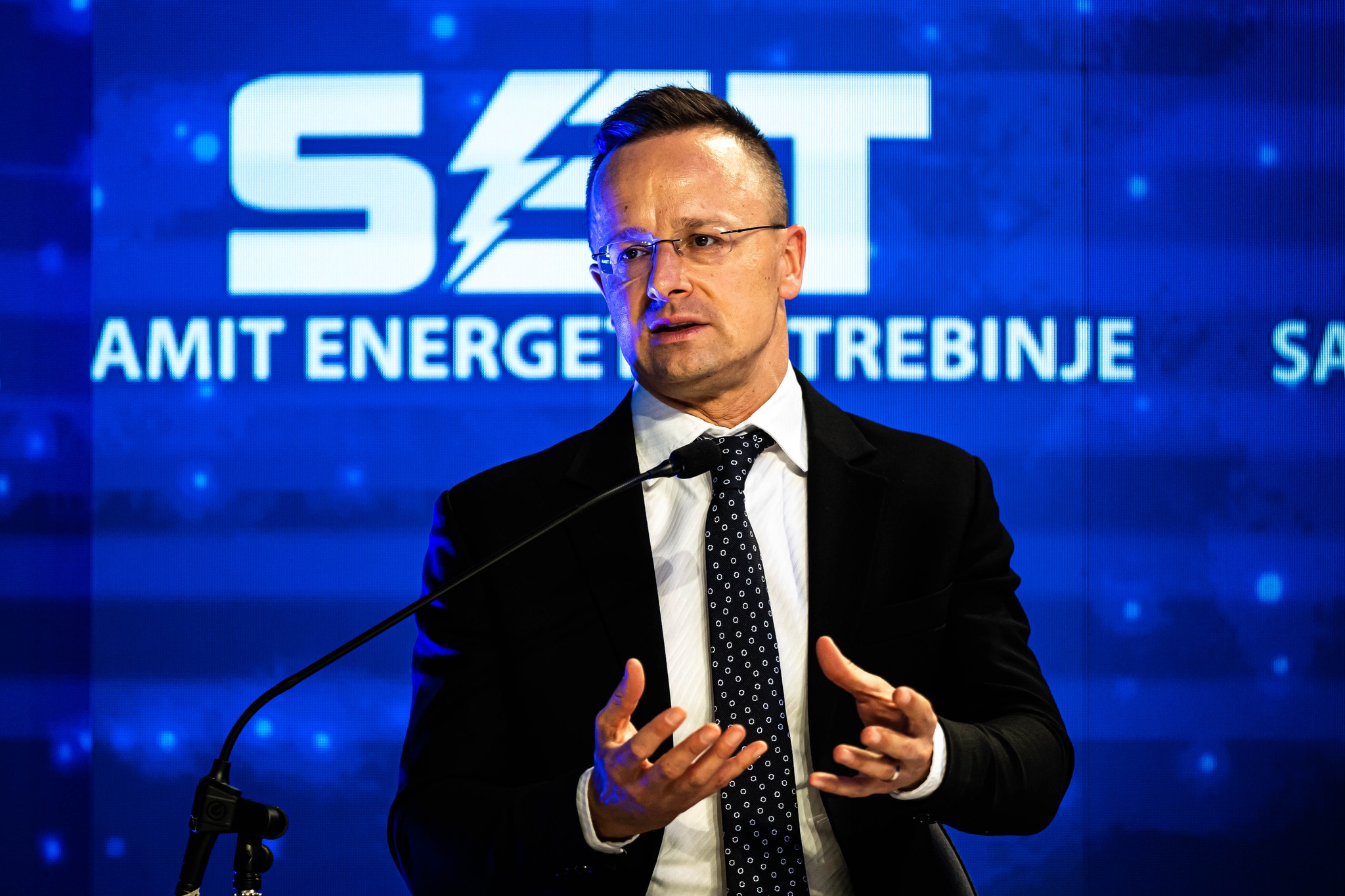The Hungarian government is not willing to give up its security of energy supply for any political reason, and although great efforts are being made to diversify its energy sources, it has no intention of diverting Russian resources either, said Minister of Foreign Affairs and Trade Péter Szijjártó at a panel discussion with Milorad Dodik at the Trebinje Energy Forum in Bosnia and Herzegovina on Wednesday.
Szijjártó said that he represents a country in the neighborhood of the war in Ukraine, where the negative effects of the armed conflict are immediate.
“Therefore, we Hungarians want peace to come as soon as possible,” he said.
Szijjártó’s speech underlined that Hungary has a special situation, as it has no coastline and imports most of its energy.
“We see energy as part of physical reality. And we would like the world to have at least two feet on the ground in terms of energy use because you cannot heat with communication panels or political statements,” he said.
He stressed that this requires a source of natural gas and a pipeline, and if one of the two is missing, we are “chasing illusions.”

“We are standing on the ground of reality, and the reality in the case of Hungary is that secure gas supplies are physically impossible today without Russian sources. Not politically, but physically impossible,” he said.
Szijjártó continued by saying that the government has made great efforts to achieve long-term diversification, but that it would take time to succeed.
“A natural gas pipeline cannot be built overnight. Maybe in five or eight years, Hungary will be able to supply natural gas without Russian sources, but there are still four or five winters to go before then.
“We are not willing to give up our security of energy supply for any political reason,” he said.
He added that diversification means attracting as many new sources as possible, not just changing the geographical direction of dependence. “We are counting on Russian energy sources in the future, alongside several other sources,” he stated.
He also explained that the Hungarian experience shows that Gazprom is a reliable contractual partner and cooperation does not fall under the scope of sanctions, so there is no reason to exclude Russian energy carriers.
The minister then touched on sanctions against Russia, recalling that their proponents argued that Moscow would not be able to continue its war if it was brought to its knees economically.
“After the adoption of 10 packages of sanctions, the war is more brutal than ever before and Russia does not look like it has been brought to its knees,” he said. Claiming their total failure, he added that the restrictions have caused skyrocketing inflation, spiralling energy prices, and economic damage to Europe.





